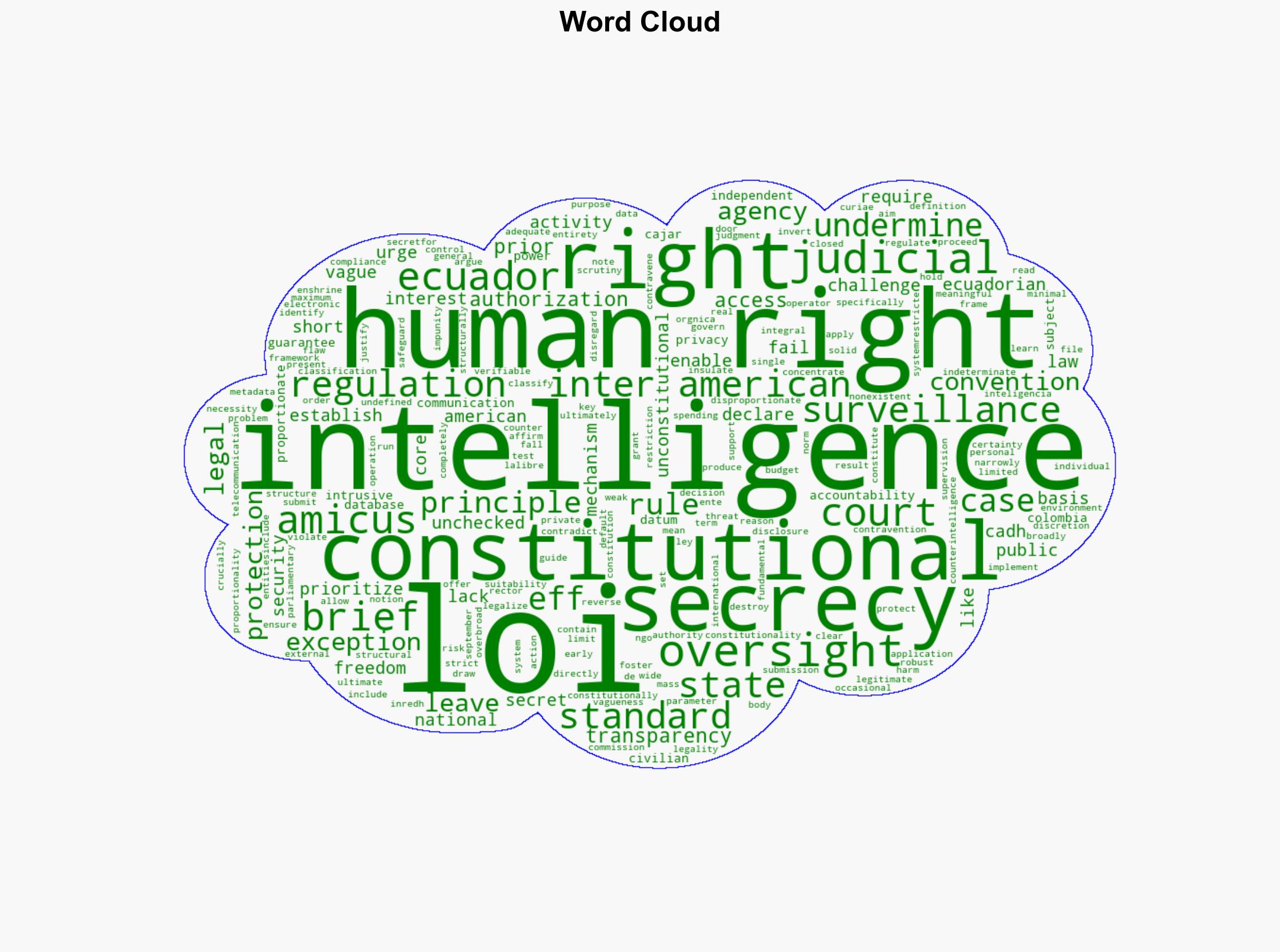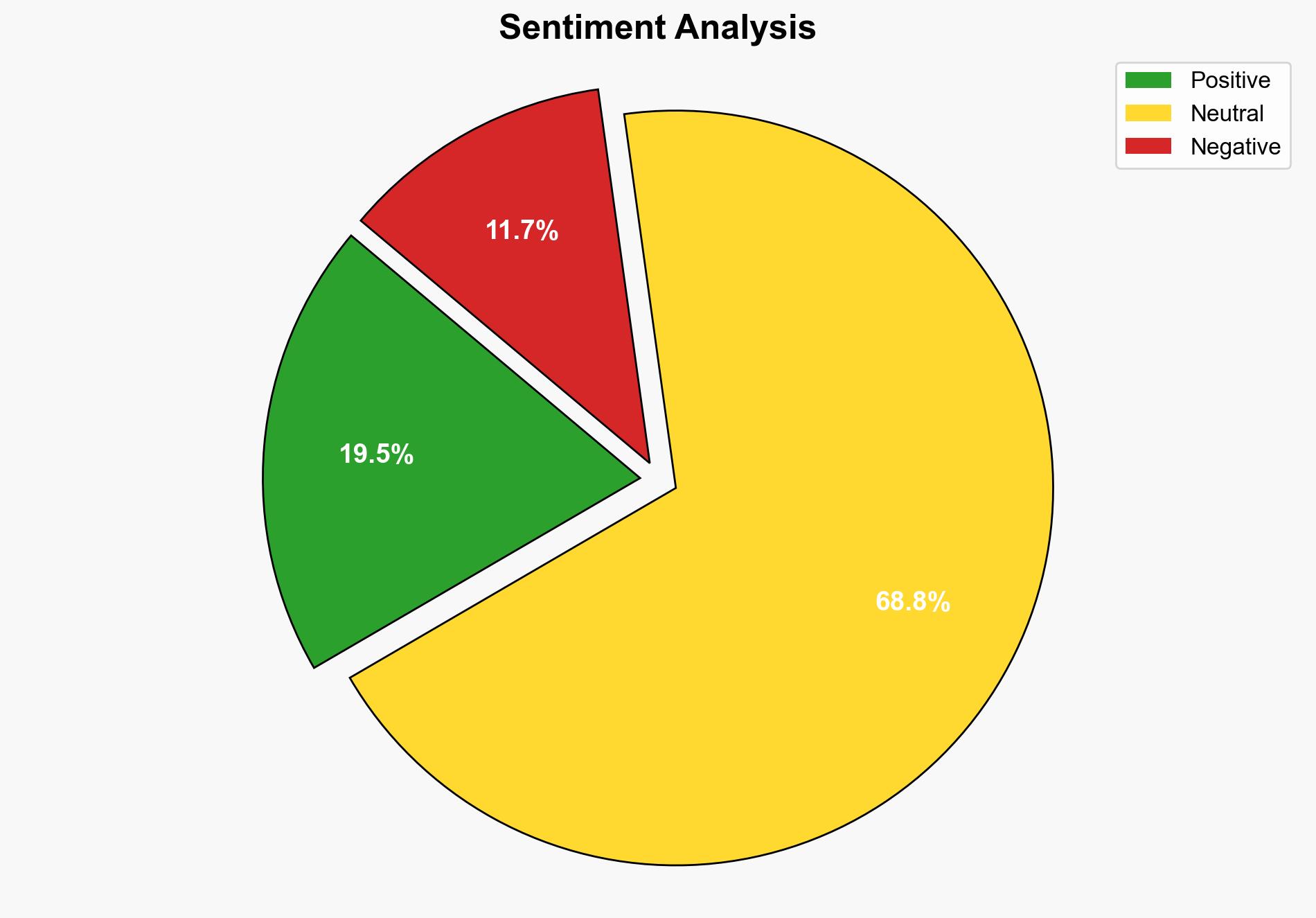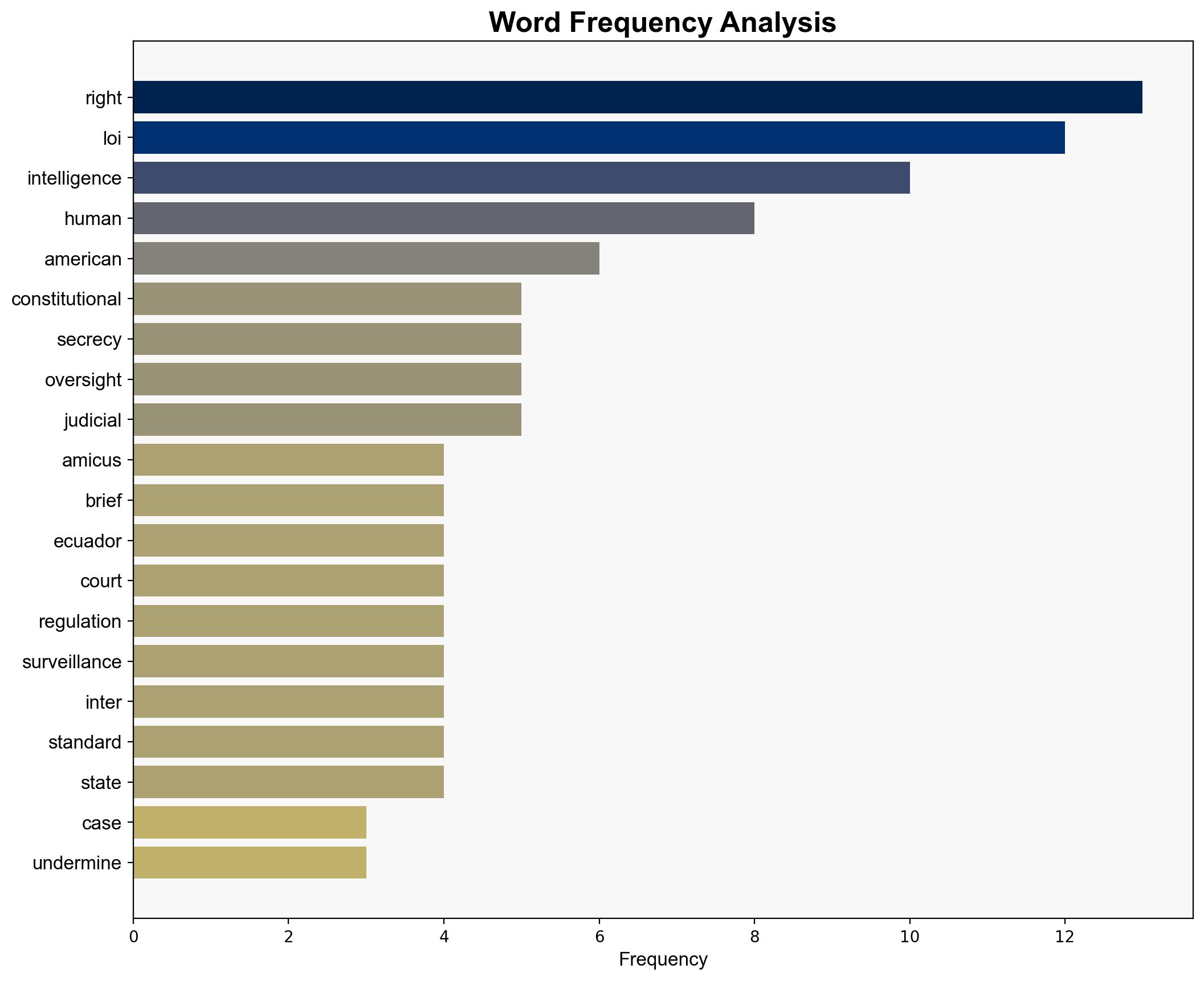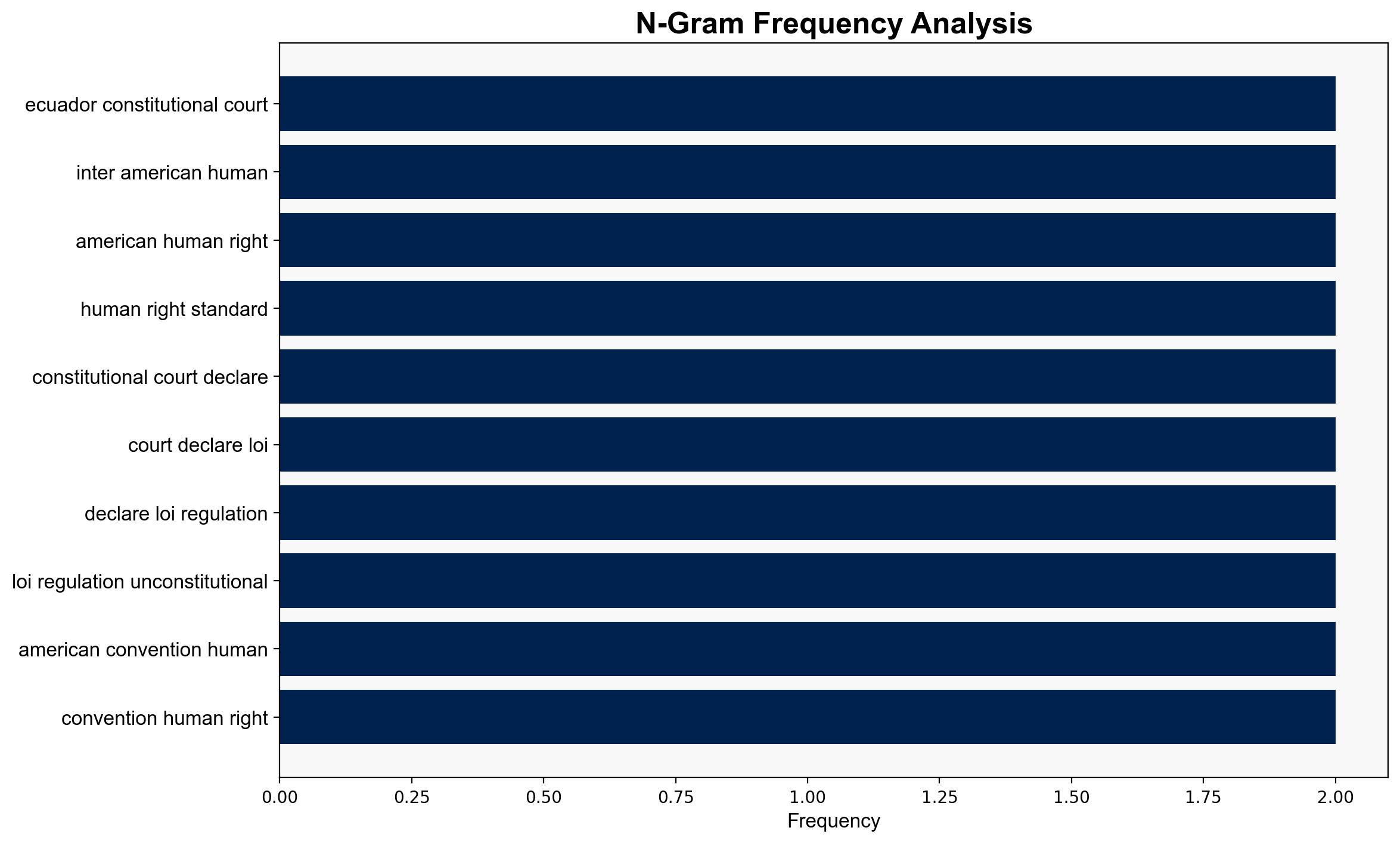EFF Backs Constitutional Challenge to Ecuadors Intelligence Law That Undermines Human Rights – EFF
Published on: 2025-10-23
Intelligence Report: EFF Backs Constitutional Challenge to Ecuador’s Intelligence Law That Undermines Human Rights – EFF
1. BLUF (Bottom Line Up Front)
The Electronic Frontier Foundation (EFF) supports a constitutional challenge against Ecuador’s intelligence law, arguing it undermines human rights by enabling disproportionate surveillance and secrecy. The most supported hypothesis suggests that the law’s vague definitions and lack of oversight are intentional to consolidate state power. Confidence level: Moderate. Recommended action: Advocate for international pressure on Ecuador to reform its intelligence laws to align with human rights standards.
2. Competing Hypotheses
1. **Hypothesis A**: The intelligence law’s vague definitions and lack of oversight are deliberate, aiming to consolidate state power and suppress dissent under the guise of national security.
2. **Hypothesis B**: The law’s deficiencies are unintentional, resulting from inadequate legislative processes and a lack of expertise in balancing security needs with human rights.
Using ACH 2.0, Hypothesis A is better supported due to the systematic nature of the law’s flaws and the historical context of government actions in Ecuador that prioritize state control over individual freedoms.
3. Key Assumptions and Red Flags
– **Assumptions**: Hypothesis A assumes intentionality behind legislative design, while Hypothesis B assumes incompetence or oversight.
– **Red Flags**: The lack of transparency and oversight mechanisms in the law is a significant red flag, indicating potential for abuse.
– **Blind Spots**: Potential international influences or pressures on Ecuador’s legislative process are not addressed.
4. Implications and Strategic Risks
– **Patterns**: The law reflects a broader trend of increasing state surveillance globally, often justified by national security.
– **Cascading Threats**: If unchecked, the law could lead to increased human rights violations and suppression of political dissent.
– **Potential Escalation**: International condemnation or sanctions could arise if Ecuador fails to address these human rights concerns.
5. Recommendations and Outlook
- **Mitigation**: Engage with international human rights organizations to apply diplomatic pressure on Ecuador for legislative reform.
- **Opportunities**: Leverage global forums to highlight the importance of balancing security with human rights.
- **Scenario Projections**:
– **Best Case**: Ecuador amends the law to include robust oversight and clear definitions, aligning with international standards.
– **Worst Case**: The law remains unchanged, leading to increased state surveillance and international isolation.
– **Most Likely**: Partial reforms are implemented, but significant gaps in oversight remain.
6. Key Individuals and Entities
– **Electronic Frontier Foundation (EFF)**
– **INREDH**
– **Lalibre**
7. Thematic Tags
national security threats, cybersecurity, human rights, regional focus





